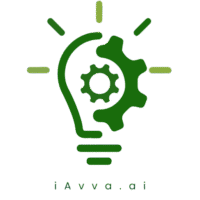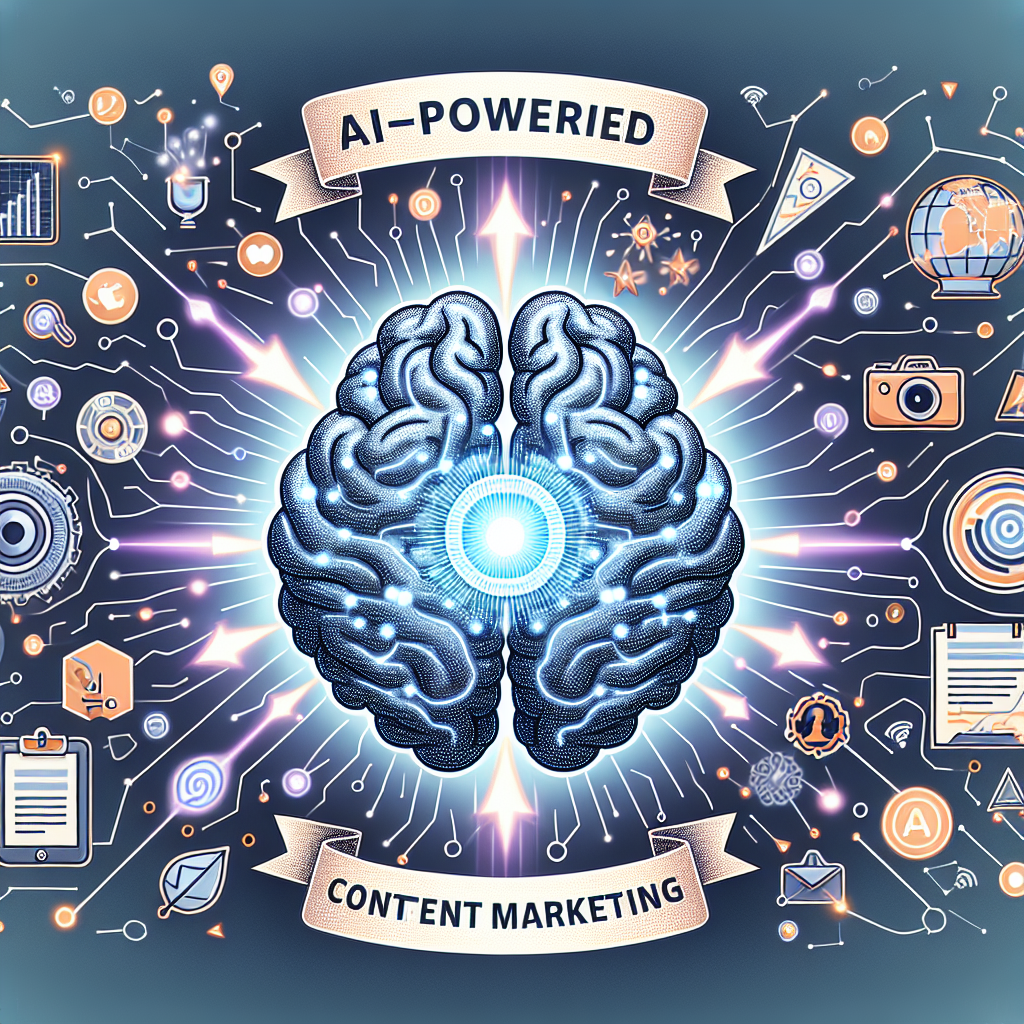Artificial Intelligence (AI) is rapidly transforming various sectors, and research is no exception. The notion of AI replacing researchers has sparked intense debate among scholars, industry leaders, and policymakers. As AI technologies advance, they are increasingly capable of performing tasks traditionally reserved for human researchers.
This shift raises critical questions about the future of research, the role of human intellect, and the ethical implications of relying on machines for knowledge generation. The integration of AI into research processes is not merely a trend; it represents a fundamental change in how we approach inquiry and discovery. The potential for AI to replace researchers is both exciting and daunting.
On one hand, AI can process vast amounts of data at unprecedented speeds, uncovering patterns and insights that might elude human analysts. On the other hand, there is a palpable fear that this technology could render human researchers obsolete. As we delve deeper into the implications of AI in research, it becomes essential to understand both the opportunities and challenges that lie ahead. Download iAvva AI
Key Takeaways
- AI is increasingly being used to replace researchers in various fields, raising questions about the potential impact on the research landscape.
- AI has the potential to significantly impact research by increasing efficiency, accuracy, and the ability to process large datasets.
- AI is being trained to perform research tasks through machine learning algorithms, natural language processing, and data analysis techniques.
- The benefits of using AI in research include faster data analysis, improved accuracy, and the ability to handle large datasets. However, drawbacks include potential biases and the loss of human intuition.
- Successful AI research projects include drug discovery, disease diagnosis, and natural language processing for literature review and data analysis.
- Ethical considerations of AI replacing researchers include concerns about job displacement, biases in algorithms, and the potential for AI to make decisions without human oversight.
- Human oversight is crucial in AI-powered research to ensure the ethical and responsible use of AI, as well as to interpret and validate the results.
- The future of AI in the research field involves a coexistence of AI and human researchers, with AI supporting and enhancing human capabilities rather than replacing them entirely.
- Researchers are adapting to the use of AI by learning new skills, collaborating with AI systems, and integrating AI tools into their research processes.
- Challenges of integrating AI into the research process include ensuring data privacy, maintaining transparency in AI decision-making, and mitigating the potential for AI to replicate biases present in existing datasets.
- In conclusion, the coexistence of AI and human researchers in the research field offers the potential for significant advancements, but also raises important ethical and practical considerations that must be carefully addressed.
The potential impact of AI on research
The impact of AI on research is profound and multifaceted.
One of the most significant changes is the acceleration of data analysis.
Traditional research methods often involve labor-intensive processes that can take months or even years to yield results.
In contrast, AI algorithms can analyze large datasets in a fraction of the time, enabling researchers to draw conclusions more quickly. This speed can lead to faster innovation and the ability to respond to emerging challenges in real-time. Moreover, AI can enhance the quality of research by minimizing human error.
Algorithms can be trained to identify biases in data and ensure that analyses are conducted consistently. This capability is particularly valuable in fields such as medicine, where accurate data interpretation can have life-or-death consequences. However, while AI can improve efficiency and accuracy, it also raises questions about the reliability of findings generated without human intuition and critical thinking.
How AI is being trained to perform research tasks

Researchers use AI for experiments
AI systems are trained using vast datasets that allow them to learn patterns and make predictions. In research contexts, this training often involves supervised learning, where algorithms are fed labeled data to help them understand relationships between variables. For instance, in biomedical research, AI can be trained on historical patient data to identify potential treatment outcomes based on specific genetic markers.
Additionally, unsupervised learning techniques enable AI to discover hidden patterns within unstructured data. This approach is particularly useful in fields like social sciences, where researchers may not have predefined hypotheses. By leveraging machine learning techniques, AI can generate new insights that inform future research directions.
However, the effectiveness of these systems heavily relies on the quality and diversity of the training data used.
The benefits and drawbacks of using AI in research
| Benefits | Drawbacks |
|---|---|
| Increased efficiency in data analysis | Potential bias in AI algorithms |
| Ability to process large datasets quickly | Loss of human touch in research |
| Identification of patterns and trends | Complexity in interpreting AI-generated results |
| Automation of repetitive tasks | Ethical concerns in AI decision-making |
The benefits of incorporating AI into research are numerous. First and foremost, AI enhances productivity by automating repetitive tasks such as data collection and preliminary analysis. This allows researchers to focus on higher-level thinking and creative problem-solving.
Furthermore, AI can facilitate collaboration across disciplines by providing tools that enable researchers from different fields to share insights and methodologies. Despite these advantages, there are notable drawbacks to consider. One significant concern is the potential for over-reliance on AI-generated results.
Researchers may become complacent, trusting algorithms without critically evaluating their outputs. Additionally, there is a risk that AI could perpetuate existing biases present in training data, leading to skewed findings that could misinform policy decisions or scientific understanding. Balancing the benefits of AI with these risks is crucial for maintaining the integrity of research.
Examples of successful AI research projects
Several successful AI research projects illustrate the technology’s potential to revolutionize various fields. One notable example is IBM’s Watson, which gained fame for its ability to analyze medical literature and assist oncologists in diagnosing cancer.
By processing thousands of research papers and clinical trial results, Watson can recommend personalized treatment options based on a patient’s unique genetic profile.
Another compelling case is DeepMind’s AlphaFold, which has made significant strides in predicting protein structures—a task that has long challenged scientists. By utilizing deep learning techniques, AlphaFold has achieved remarkable accuracy in predicting how proteins fold based on their amino acid sequences. This breakthrough has far-reaching implications for drug discovery and our understanding of biological processes.
Ethical considerations of AI replacing researchers

As AI continues to evolve, ethical considerations surrounding its role in research become increasingly important. One primary concern is the potential for bias in AI algorithms, which can arise from the data used for training. If historical data reflects societal inequalities or prejudices, AI systems may inadvertently perpetuate these biases in their analyses and recommendations.
Moreover, there are questions about accountability when AI systems produce erroneous results. If an algorithm leads to a flawed conclusion that impacts public health or safety, who bears responsibility? Establishing clear ethical guidelines for the use of AI in research is essential to ensure transparency and accountability while fostering trust among stakeholders.
The role of human oversight in AI-powered research
Human oversight remains a critical component of AI-powered research processes. While AI can enhance efficiency and accuracy, it cannot replace the nuanced understanding that human researchers bring to their work. Human oversight ensures that ethical considerations are taken into account and that findings are interpreted within appropriate contexts.
Researchers must remain actively engaged in the research process, using AI as a tool rather than a crutch. This collaboration between humans and machines can lead to more robust findings and innovative solutions to complex problems. By combining human intuition with AI’s analytical capabilities, researchers can navigate the challenges posed by an increasingly data-driven world.
The future of AI in the research field
The future of AI in the research field holds immense promise but also presents challenges that must be addressed. As technology continues to advance, we can expect even more sophisticated algorithms capable of tackling complex research questions across various disciplines. The integration of AI into research workflows will likely become more seamless, allowing researchers to leverage these tools without extensive technical expertise.
However, as we embrace this future, it is crucial to prioritize ethical considerations and ensure that human oversight remains integral to the research process. By fostering a collaborative environment where humans and machines work together, we can harness the full potential of AI while safeguarding the integrity of scientific inquiry.
How researchers are adapting to the use of AI
Researchers are increasingly recognizing the value of integrating AI into their work processes. Many academic institutions and organizations are investing in training programs to equip researchers with the skills needed to effectively utilize AI tools. This shift requires a cultural change within research communities as scholars learn to embrace technology as an ally rather than a threat.
Additionally, interdisciplinary collaboration is becoming more common as researchers from diverse fields come together to explore how AI can enhance their work. By sharing knowledge and expertise, researchers can develop innovative approaches that leverage AI’s capabilities while addressing its limitations.
The challenges of integrating AI into the research process
Despite its potential benefits, integrating AI into the research process presents several challenges. One significant hurdle is the need for high-quality data that is representative and free from bias. Researchers must invest time and resources into curating datasets that accurately reflect the populations or phenomena they study.
Furthermore, there may be resistance from some researchers who fear that adopting AI will diminish their role or undermine traditional methodologies. Overcoming this resistance requires effective communication about the complementary nature of AI and human expertise in driving meaningful research outcomes.
The coexistence of AI and human researchers
In conclusion, the coexistence of AI and human researchers represents a transformative opportunity for the field of research. While concerns about AI replacing researchers are valid, it is essential to recognize that these technologies are tools designed to enhance human capabilities rather than replace them entirely. By embracing collaboration between humans and machines, we can unlock new avenues for discovery while maintaining ethical standards and accountability.
As we move forward into an era where AI plays an increasingly prominent role in research, researchers must adapt and evolve in tandem with these technologies. By fostering a culture of innovation and collaboration, we can ensure that both human intellect and artificial intelligence make meaningful contributions to our understanding of the world around us.
In the rapidly evolving field of artificial intelligence, researchers are not only advancing the capabilities of AI. Still, they are also preparing for a future where AI models might outperform humans in various digital tasks. This proactive approach is evident as AI researchers meticulously document their work, potentially training their own replacements. A related article that explores the integration of AI in various sectors is “Improving Your Teaching with an AI Coach.” This piece explores how AI can enhance educational practices, offering insights into how AI tools can support and potentially transform traditional teaching methods.
FAQs
What is the article about?
The article explores how AI researchers are training AI models to potentially perform digital tasks more effectively than humans, and the implications of this development.
Why are AI researchers training AI models to potentially replace themselves?
AI researchers are taking the possibility of AI models outperforming humans in nearly any digital task seriously. As a result, they are training AI models to potentially replace themselves in order to stay ahead of technological advancements.
What are the implications of AI models potentially outperforming humans in digital tasks?
The implications of AI models potentially outperforming humans in digital tasks are significant, as it could lead to major shifts in the job market, workforce dynamics, and the way society operates. It also raises ethical and societal questions about the impact of AI on human labor and decision-making.
How are researchers recording their work to train AI models?
Researchers are documenting their work by recording their processes, methodologies, and decision-making to create datasets that can be used to train AI models. This includes recording data, algorithms, and other relevant information to teach AI systems how to perform tasks.
What are some of the challenges and concerns associated with training AI models to potentially replace humans in digital tasks?
Some of the challenges and concerns associated with training AI models to potentially replace humans in digital tasks include ethical considerations, job displacement, and the potential for biases and errors in AI decision-making. There are also concerns about the impact on human creativity and the need for oversight and regulation in the development and deployment of AI technologies.










Leave a Reply